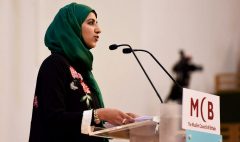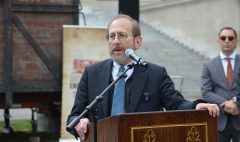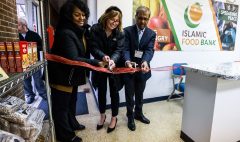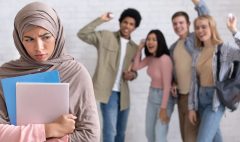“Race, Faith and Community in Contemporary Britain”
November 8, 2022 2023-05-28 0:45“Race, Faith and Community in Contemporary Britain”
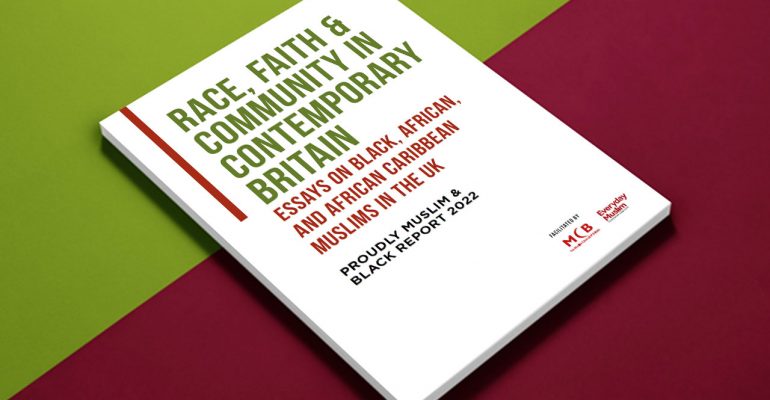
“Race, Faith and Community in Contemporary Britain”
The Latest Report by the Muslim Council of Britain (MCB)
The 22nd of September saw the release of the latest report by the Muslim Council of Britain (MCB) in collaboration with Everyday Muslim Archive and Heritage Initiative (an archive which documents and preserves UK Muslim experiences). Titled “Race, Faith and Community in Contemporary Britain”, the report shines light on the heritage, perspectives, contributions and history of Black, African and African-Caribbean Muslims in the UK.
Over forty authors contribute to the report and come from a wide range of cultural, professional, and educational backgrounds to challenge perceptions of what a “Muslim visibly looks like as well as what It means to be Black and British”. Covering key themes such as invisibility and marginality, space and opportunity, history and culture, the essays in the report also cut across of range of spheres in public life, the media, and British Muslim communities.
Demographic Overview
According to the 2018 Annual Population Survey (by the Office for National Statistics) there are 3.3 million Muslims in Britain with 10% of the Muslim demographic being “Black Caribbean” or “Black African”, and the biggest number of Black Muslims describe themselves as being Black African (7.7% of the total UK Muslim population). In 2020 a survey published by Muslim Census sought to unmask anti-blackness amongst young Muslims in the UK. 250 non-Black Muslims in the UK were surveyed between 4th and 5th June 2020. Findings from this survey show that 98% of respondents believe racism exists within the Muslim community and 97% believe the UK Muslim community does not do enough to tackle racism. A further 82% have witnessed anti-Black racism from their own family and friends whilst 31% of respondents admitted holding anti-Black prejudices themselves, either in the past or at present.
Along the same line, a 2019 study published by the Black Muslim forum (Black rights civic organization that aims to support Black Muslims globally) found that most respondents have experienced racism (79%) and nearly 50% have experienced racism within Muslim communities. A majority of respondents also reported they felt they did not belong to the mosque.
Arts and Heritage
This first section of the report explores Black Muslim diaspora in the UK, focusing on how they have sought to maintain their African and Caribbean identities through arts and heritage in the face of discrimination. Within this section, six essays document Black Muslim history in the UK, with a particular focus on Somalian Muslims, and how anti-Blackness in the Muslim community is dealt with through celebrating African Muslim culture.
Black Lives Matter 2020
The essays of section two of the report concern the Black Lives Matter movement. They focus on the period building up to and following the murder of George Floyd in 2020 and its ramifications on the British Muslim community.
Criminal Justice
Within the report, the four essays in this section explore Black Muslim experiences with the police, the judicial system, UK prisons and Immigration policy. Saffie Jallow Aidara (an associate barrister) discusses the role different factors play in shaping Black British Muslims interactions with the criminal justice system, specifically the “Stop and Search” process. In 2018/2019 22% of all Stop and Searches were carried out on Black people in England and Wales despite them making up only 3% of the population.
Another contribution “Surviving in British Politics as a Black Muslim Hijabi Woman” by Councillor Rakhia Ismail, shows that the discrimination faced by Black Muslim Women is not discussed within the criminal justice system. On the other hand, Rakhia says that as as Black woman herself who wears the hijab, it has “helped to assert my identity as a Muslim and ease my acceptance by the Muslim community”.
Education
Soukeyna Osei-Bonsu writes about the importance of Black supplementary schools in British society in general and British Muslim communities in particular, especially with an education system where “empire and whiteness is the norm” and where “nationalism has inevitably seeped into the curriculum, into classrooms, lesson plans and history books”. She describes how through the UK education system Black and Black Muslim children abilities are systematically undermined through the prominence of the “school to prison pipeline”. Osei-Bonsu also looks at the similarities between British state schools and Islamic schools, where according to the Black Muslim Forums (2020), “the Islamic madrassah is not exempt from racialised tactics on the part of teachers and racist bullying from other students”.
Bashirat Oladele (Law and Sociology student at the University of Warwick) focuses education at British Universities, asking “is there a space for Black Muslims at University?”. Feelings of being an outsider, being overwhelmed, isolated dominate Black Muslim students experiences, that are not properly addressed in societies such as the “African Caribbean Society” and the “Nigerian Society” that focus on culture rather than religion. They can also be dismissive of Black Muslim experiences by assuming all Black people are Christian. In a similar vein, university Islamic societies (university-based student groups that serve and represent Muslim students on campus) also lack acknowledgement of Black Muslims. According to research conducted by the Black Muslim Forum (BMF) in 2020, 84% of respondents reported they felt they did not belong to their universities Islamic society, a statistic that was met with shock by the heads of University Islamic Societies, particularly at the University of Birmingham, who went onto conduct research on the systemic problems within their society to spur on change and undo legacies of racism.
Employment
Muslima Adelani (a London based teacher) shares her personal experiences in the education sector. She recounts the rigorous interview stages, hostility from parents, and being under constant pressure to prove her capability to school management. Adelani attributes such discrimination to racial profiling and says her experience reflects that of many other Black and minority ethnic educators. A report by the Runnymede Trust in 2016 indicated that BME teachers reported feelings of isolation and lacked management support in incidences of racism. Adelani notes that for Black Muslim teachers there is an additional dimension of faith in their professional environment, where “some experiences of racism, prejudice, and discrimination come from other BME communities, namely, within the Muslim communities”.
Media
This section of the report consists of three essays on the media practice of African and Black Caribbean British Muslims. Halimat Shode (writer, speaker and founder of the online publication “The Black Muslim Times”) writes about identity spaces online and the importance of Black Muslims having their own media platforms. In her view, one of the challenges in mainstream media is the lack of representation of Black British Muslims. Shode notes that only one part of her identity, either her ethnicity as a Black woman, or religious affiliation as a Muslim is reflected in British media at any given time, which has led many to turn to online spaces to affirm their identities.
A further problem for the Black African, and African Caribbean British Muslim communities (BAACBM) communities is the “lack of established networks” that facilitate growth and expansion of online spaces. Without frameworks of reference, Black British Muslims are often starting projects from scratch. Many do not have the initial start-up capital to fund projects and resort to crowdfunding and donations to supplement the success of the project.
Religion and Community Life
In his essay “The Black Muslim Presence in Britain” Sheikh Danjuma Bihari describes the “journey of Islam into the UK from the perspective of the African and Black Caribbean Muslims” which helps to “gain an insight into how Islam evolved within Black communities especially in London”. In another contribution in this section, Lamine Konate (Deputy Imam of Peckham High Street Mosque) discusses the importance of his mosque in serving a diverse community of congregants, primarily of West African origin who share a linguistic and cultural heritage.
Sports
The final section of the report concerns the experiences of Black Muslims within the sport sector with essays on the successes but also the limitations Black Muslims face, including Jawahir Roble’s journey to becoming the UK’s first female Muslim football referee. Similarly, in his essay on “sports performance academy: ambitions and current work” Al-Ameen Amodu (Football Association qualified football coach) discusses the importance of Black Muslim role models for children in sport.
Conclusions
The report sought to reflect the lived experiences of British Muslims of African and Black Caribbean heritage. The different essays challenge the perceptions of what it means to be both “Black and British” and what Muslim identity looks like. They also reflect a lot of the initiatives and efforts of individuals who contribute to and transform their communities and societies, as well as the challenges they face. According to the MCB “they (the essays) remind us in powerful ways of our responsibilities to work towards equality of recognition, equality of outcomes, and equality of dignity across Muslim communities in Britain”.
Read the full report HERE.
Source: Euro-Islam



